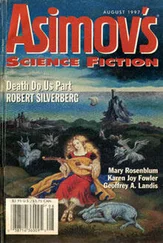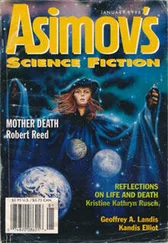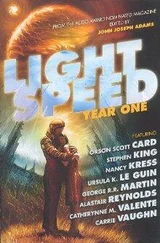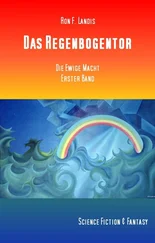“Perfect agreement,” Ryan announced. Each of the vehicles had a separate inertial navigation system, and comparing the three readings was a way to check that all of them were working, even over an extended traverse. “Two hundred ninety kilometers. Not bad for the first day.”
Tana translated in her head; a hundred seventy-five miles. No, not bad. If they could keep up that rate it would take them twenty days to reach the pole. And they should go faster, once they got used to the feel of driving real equipment, instead of the virtuals they had trained on.
This territory had a different feel, Tana thought. Rougher. The ground was a dark volcanic rock, riddled with grooves and pockmarks and cracks and crevices. The indentations were filled in with light-colored dust, making odd patterns that looked like a weird, alien writing. She ran her hand over the rock. Even through the glove, she could feel its texture, probe her fingers into the shallow depressions and cracks.
After inflating the bubble, Estrela had disappeared back into the rock-hopper with John Radkowski. Tana wondered why.
She wondered what motivated Estrela. Estrela seemed open and uninhibited, all of her virtues and vices superficial, but Tana had come to suspect that she had a core of opacity, a secret level of self that she never allowed to show.
Since her own disastrous marriage, Tana had been discreet with men—quite willing enough to take an enjoyable interlude when the opportunity presented itself, but not promiscuous. Her job was tough enough; she didn’t need complications in her life. Estrela, though—she flirted with every man she met. How could she?
Tana suddenly thought, what business could she have with John in the rockhopper that could be taking so long? She had a sudden pang of jealousy. But surely not—it was ridiculous to even think it.
Still—there had been that briefing.
“Six astronauts, four male, two females,” the psychologist had told them, in a preflight briefing to the female crew. There had been dozens of such briefings, role-playing lessons in conflict resolution, mandatory courses on cultural awareness. This briefing had been her and Estrela only; the men had been lucky enough to be sent on a training run, Radkowski and Ryan Martin flying a jet fighter across the skies of Nevada, Trevor and Chamlong identifying rocks in a classroom in Houston. “An odd split. Why do you think we chose it that way?”
“No problem,” Estrela said. “A woman can take more than one man.”
“Wrong,” the psychologist had said. The psychologist was an older woman, with a dumpy figure and gray hair. “It’s because if we split it up evenly, the crew would pair off into couples. That will be disastrous. Disastrous for the crew function, and disastrous for the people involved—since there will be a strong social pressure to pair off whether you like to or not.”
“So this way two of the men stay horny?” Estrela said.
“No. I suggest that all of the men should stay horny. I would strongly suggest that you do not engage in sexual relations with any of them. You fall in lust with one of them, that’s fine, but save the bump and grind for until you get back.” She paused. “It doesn’t actually harm men to be horny, you know,” the psychologist said. “In fact, in some ways it even increases male task-related performance ratings.”
“I think maybe I take three of them,” Estrela said. “That skinny girl can keep one for herself. In fact, maybe I just take all four, leave nothing for her.” She smiled a wide innocent smile, and looked at Tana. Tana kept her face impassive.
“Now, I can’t tell you how to behave,” the psychologist said, “but I strongly suggest that is not a good idea.”
Estrela had been just twigging the psychologist, Tana had thought. She had been quite vocal in telling Tana that she was none too fond of shrinks, and liked to rattle their cages.
Or so Tana had thought at the time. Now she wished that she wasn’t wearing gloves. If she could, she would be biting her fingers.
What did Estrela want with John in the rockhopper?
And then the emergency band of the radio turned itself on. It was Ryan Martin’s voice, and for a moment she couldn’t figure out what he was saying. Then she suddenly realized.
He was singing.
Estrela sometimes swore by Santa Luzia. She said that her mother always swore by this.
In actual fact, her mother had been a prostitute. While she was alive, she had used a strong and colorful language that liberally mixed blasphemy, obscenity, and scatology.
João had, slowly and patiently, broken her of her language. It doesn’t matter how sophisticated you look, he said, the moment you lose your temper and swear, everybody will know you were born in a gutter.
It was João who had taught her to swear by Santa Luzia. “Everyone has to swear by something,” he said. “Learn something that’s not crude.”
It had been hard to practice. She had held out her hand, and closed her eyes, and when she relaxed and didn’t expect it, João hit her on the hand with a broomstick. “Santa Luzia!” she was supposed to shout. “Santa Luzia!”
“Yes, but as if you mean it,” João would say, and suddenly hit her with the broomstick again.
“Santa Luzia!”
“If you could blush after you say it, that would be even better,” he told her, but she could never manage that trick. For a long time she was hard pressed to avoid giggling when she said it—it was such a silly, harmless thing to swear by, who could possibly take it seriously?—but after a while it became second nature to her, so much that she now even said it without thinking when she was actually startled.
When she was among Americans, she was silently amused by the poverty of what they thought was swearing. “Fuck!” the Americans would curse. “Fuck you!”—as if that were a curse. They were like children, pleased with a petty daring.
João lived in an enormous ugly concrete building that was a kilometer or so away from the college. He shared a cramped apartment with two other hoys from the college; none of them ever bothered to clean, and the apartment was so cluttered that it was hard to find the floor.
Estrela would come to João’s apartment in the afternoon, after class, and they would talk. João would buy coffee—only little amounts, his teaching assistantship paid very little—and he would make two small cups on the single working burner of the tiny kitchen stove. João told her about his dreams and his plans for the future. None of their other classmates at the college could actually know what we lived through, he would tell her, only you. You are my only true friend, the only one who knows me for who I really am.
He told her how he had decided to study geology. Even from the worst slums, he had stared from the city up at the mountains in the distance, the mountains that were ever changing and always the same. He had decided that people were untrue, but the mountains were a solid thing that he could always rely on, and if he ever understood them, really understood, that he would have something—he could never quite explain what, but something.
Everyone needs something to hold on to, Estrela knew. A mountain was as good a choice as any.
Estrela loved to hear João talk about his dreams and plans, but she secretly marveled that a ragged street boy could hold such elaborate dreams. She, herself, had far simpler hopes. Her dreams at night were broken by images of being alone, huddled against a terrible darkness, with the stench of fear and rifle smoke assaulting her nostrils, and the night punctuated by the beautiful and awful flares of rifle shots. Her hopes and her plans were the same. She had, by her luck and her dogged study, managed to leave Brazil. Her only plans were to never go back.
Читать дальше












